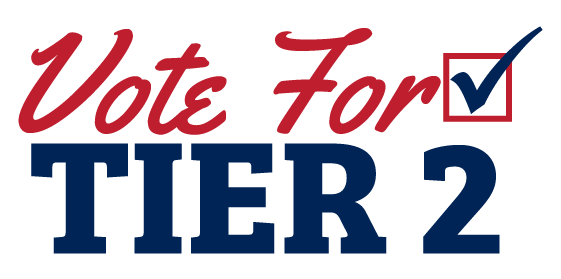Frequently Asked Questions
Q: What is forced annexation? Can a city really do that?
A: Forced annexation is a legal process by which property located in an unincorporated area of a county may become part of a neighboring city. The property must be “contiguous to” (next to and touching) the existing city boundary lines to qualify for annexation.
Texas law currently allows cities in most counties (aka: Tier 1 counties) to annex contiguous property without asking the owners or residents of that property for permission.
Q: What does “Tier 2” mean?
A: Under Texas Local Government laws regarding municipal annexation, Texas counties are divided into two categories – Tier 1 and Tier 2. The Tiers were originally described by population – Tier 1 counties are those with less than 500,000 residents, and Tier 2 counties are those with 500,000 or more people. However, the law also has a process to allow a smaller county to become a Tier 2 county regardless of population, if the residents vote to do so.
Cities within Tier 2 counties must follow strict rules about annexing property outside their boundaries. Those cities are required to allow impacted residents a vote to approve or deny any proposal that would annex their area into the city boundaries.
Cities in Tier 1 counties do not have to allow a vote before annexing land outside their boundaries.
Q: I can’t believe forced annexation can happen in Texas. Can’t we just end forced annexation statewide?
A: There is currently legislation filed by Rep. Phil King (HB 347) would remove those Tier 1 and Tier 2 distinctions for counties, and, in short, end forced annexation statewide. HB 347 is currently winding its way through the committee process. Watch the first committee hearing.
The Senate versions—SB 408 by Sen. Brian Birdwell and SB 745 by Sen. Charles Schwertner—have been sent to the Senate Intergovernmental Relations Committee, but they have not yet been scheduled for hearings.
Q: What happens when I’m annexed?
A: Property that is annexed into a city is typically then subjected to all the rules and regulations of that city, including zoning and land use laws, as well as property taxes.
In return, property owners may have access to city services, such as utilities and emergency responders.
Q: If cities aren’t allowed to annex property as they deem necessary, won’t that cause problems like depressed property values, slowed growth, and higher taxes?
A: No. In order to achieve sustainable growth, cities need to foster an open and inviting community and regulatory environment that is attractive to new residents and businesses – they can’t annex their way into successful economic development. In fact, adding additional property to the city’s tax rolls is likely to make everyone’s property taxes increase, as the city will be on the hook to provide costly additional services to areas far beyond their core territory.
Q: Why is this issue coming up now?
A: The Texas Legislature passed a new law, enacted December 1, 2017, which requires cities to hold a vote before annexing property. However, the new law only applies to cities in counties over 500,000 population (aka: Tier 2 counties). Rep. Phil King successfully authored an amendment on the new law to enable residents of smaller counties to approve (through a petition and ballot measure process) becoming Tier 2 counties, meaning they would then be given the chance to vote on future annexation proposals.
Q: Would this change be permanent?
A: Yes. If residents vote to become a Tier 2 county, people in these nine counties would get a vote if a city wanted to annex their land in the future.
Q: Who is behind this campaign?
A: A dedicated coalition of property owners in Ellis, Montague, Reeves, Atascosa, Freestone, Johnson, Palo Pinto, Parker and Wise Counties. The Texas Association of REALTORS® is delighted to support their efforts.
Q: Are you against annexation?
A: We are opposed to forced annexation, which happens when a city expands its boundaries by taking in property that was previously outside its borders, without asking permission from the people who own that land.
The new state law still allows voluntary annexation, which can occur when property owners outside city borders ask to become part of the city.
Q: Will voting for Tier 2 status end forced annexation?
A: Yes. If voters approve these propositions, forced annexation would end in these counties.
